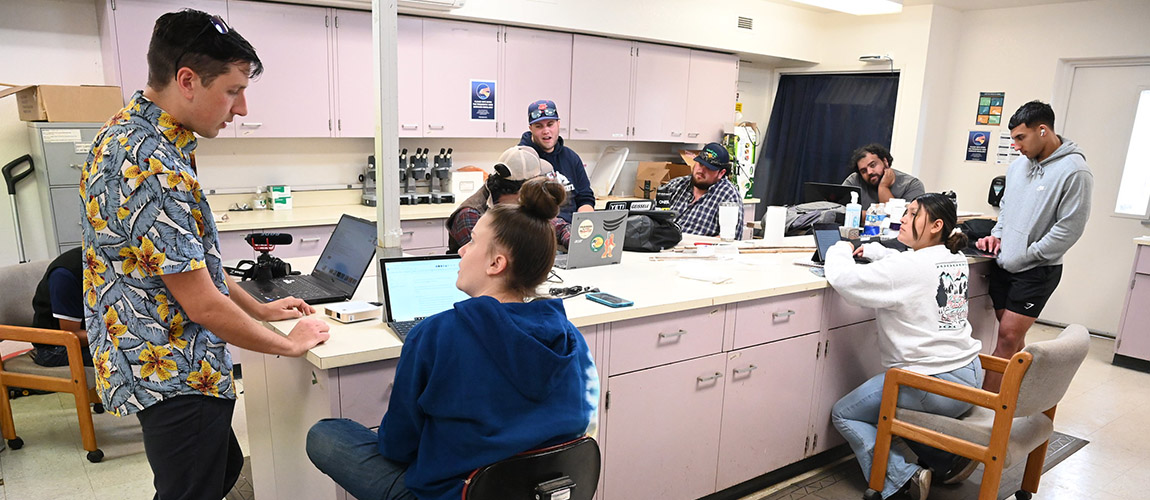The Jordan College of Agricultural Sciences and Technology
Student plant projects aim for moon
(July 20, 2023) - Happy #NationalMoonDay from Fresno State Plant Science Department faculty Jacob Hurst and students who participated in the ‘Plant the Moon’ challenge to research a crop that could potentially be grown on lunar soil.
Twenty four students worked together in three groups during the spring semester to test various soil, water and amendment variables on quinoa (which can be grown and eaten as either a microgreen or leafy green vegetable).
Over the course of 10 weeks, they measured seed and plant growth in different growing media samples of field soil from the campus farm and lunar highlands (provided by Exolith Lab). The students also added beneficial organic matter (coco coir and biochar), Miracle Gro plant food, mulch and/or a mycorrhizal inoculant (a soil-born fungus that encourages plant growth and root development) to the plant samples.
The projects also only looked at seed germination and the effects on soil pH from the different treatments and irrigation methods, and also how humidity and fungal contaminations affected the seedling development in the experimental growing conditions.
Fresno State students chose quinoa (Chenopodium quinoa) as a possible candidate for lunar agronomy applications since it’s a 1) fast-growing plant, 2) with a resilience to a wide range of soil and moisture factors, 3) and edible and nutritious.
The national program’s goal is to research crops that could be grown by astronauts or lunar colonies in the future, and also help students consider how agronomic principles would differ in an entirely different environment like the moon (and with its soil which lacks essential nutrients found on Earth).
Past studies have shown that plants can possibly germinate and grow on Martian and moon soil simulants without added nutrients, and our students hoped to take this concept a step further and encourage improved crop yields.
Once they gathered their data, they submitted their results, photos, videos and report for the challenge, which is open each fall and spring to student and professional teams (and more information is at https://plantthemoon.com/challenge ).
